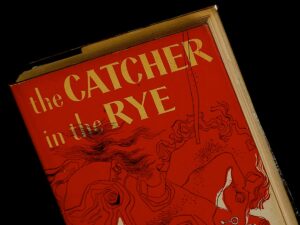We recently saw the release of Ben Wheatley’s adaptation of Daphne du Maurier’s seminal novel, Rebecca. The film is a Netflix production and boasts a cast including Armie Hammer as Maxim de Winter and Lily James as the Unnamed Protagonist. The dynamic between these two is fabulous and conveys the burgeoning romance upon which the film pivots with success. However, that is unfortunately about as far as the positives go for this flick.
The film is extremely bland in every other department, giving the audience little to be engrossed by. It certainly begs the question why was the film made at all? The original adaptation of Rebecca was directed by Alfred Hitchcock and is still as effective today as it was upon its release in 1940. If Hitchcock’s reputation doesn’t convince you of the film’s quality alone, then his working relationship with du Maurier should surely provide enough assurance that his adaptation will never be improved upon. Sadly, Netflix’s reworking of Rebecca appears to be more of a cash grab than a legitimate effort to revisit du Maurier’s magnificent novel.
Regrettably, this is only the latest case of a film adapting a beloved novel performing poorly critically. Films such as The Great Gatsby (2013) and The Dark Tower (2017) left a lot to be desired, with fans of the source material criticising their ability to translate the book’s charm to the silver screen. The Dark Tower was extremely dull and lifeless whereas Baz Luhrmann’s larger than life retelling of The Great Gatsby focussed too much on CGI backdrops and an impressive yet completely incongruous soundtrack. It could be that these failings are a result of the texts themselves and maybe the way they have been written renders them impossible to adapt to the screen. This is perhaps true for a text such as The Catcher in the Rye as the novel’s author, J.D. Salinger, forbid it to ever be converted into a film.
Although I do not think this is the case for either of the films mentioned above. The shortcomings lie within each adaption rather than the genre of literature translations being innately flawed. This is palpable through films as recently as Greta Gerwig’s Little Women (2019). This was a delightful picture, proving that sticking faithfully to the source material does not limit the quality of the film. Little Women was an extremely charming revision of Louisa May Alcott’s novel of the same title. I believe the film is so effective due to its decision to focus less on the prestige of the novel; rather, prioritising the audience’s overall enjoyment and the beauty of the narrative.
What do you think? Are there any adaptations that you think nailed it or ones that you couldn’t live without? Let us know in the comments or get in touch on Twitter @YSJFilmMedia
By Henry King


